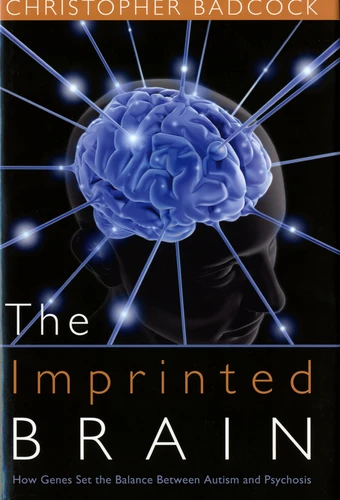The Imprinted Brain. How genes set the balance between autism and psychosis
Par :Formats :
Définitivement indisponible
Cet article ne peut plus être commandé sur notre site (ouvrage épuisé ou plus commercialisé). Il se peut néanmoins que l'éditeur imprime une nouvelle édition de cet ouvrage à l'avenir. Nous vous invitons donc à revenir périodiquement sur notre site.
- Nombre de pages256
- PrésentationRelié
- Poids0.55 kg
- Dimensions16,5 cm × 24,0 cm × 2,0 cm
- ISBN978-1-84905-023-4
- EAN9781849050234
- Date de parution01/07/2009
- ÉditeurJessica Kingsley Publishers
Résumé
What causes conditions like autism and schizophrenia ? We have long know that they run in families, and therefore must have a genetic dimension, but no one has yet been able to specify exactly what that is. The Imprested Brain theory does just this. It is being hailed as one of the most exciting contributions to modern psychiatry since Freud. Combining insights from the genetic theory of genomic imprinting with psychological observations, it points out that conditions like autism and schizophrenia come with some strikingly opposite traits, which may have a basis in genetic conflict. The theory proposes that this could result in an evolutionary "" ug-of-war ", with a win for the father's genes pushing the developing brain towards the autistic spectrum, and a win for the mother's genome pushing it in the direction of psychosis. The theory also casts some intriguing new light on topics as diverse as magic, religion, the secret of genius, homosexuality, the nature/ nurture debate, and the standing of psychoanalysis. This extraordinary book makes startling new sense of much that is already known, and suggests elegant explanations for much that has until now stubbornly resisted explanation. Its insights could fundamentally alter the way we think about mental illness and the inner workings of the mind.
What causes conditions like autism and schizophrenia ? We have long know that they run in families, and therefore must have a genetic dimension, but no one has yet been able to specify exactly what that is. The Imprested Brain theory does just this. It is being hailed as one of the most exciting contributions to modern psychiatry since Freud. Combining insights from the genetic theory of genomic imprinting with psychological observations, it points out that conditions like autism and schizophrenia come with some strikingly opposite traits, which may have a basis in genetic conflict. The theory proposes that this could result in an evolutionary "" ug-of-war ", with a win for the father's genes pushing the developing brain towards the autistic spectrum, and a win for the mother's genome pushing it in the direction of psychosis. The theory also casts some intriguing new light on topics as diverse as magic, religion, the secret of genius, homosexuality, the nature/ nurture debate, and the standing of psychoanalysis. This extraordinary book makes startling new sense of much that is already known, and suggests elegant explanations for much that has until now stubbornly resisted explanation. Its insights could fundamentally alter the way we think about mental illness and the inner workings of the mind.

